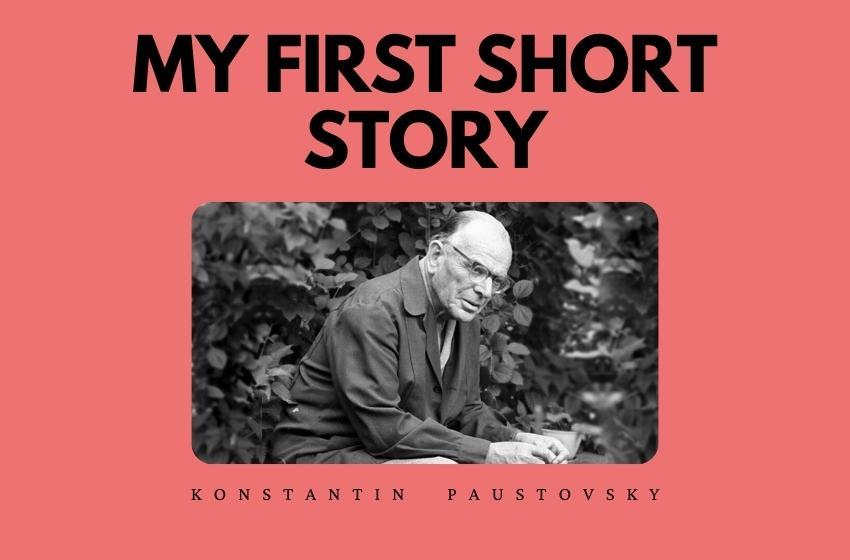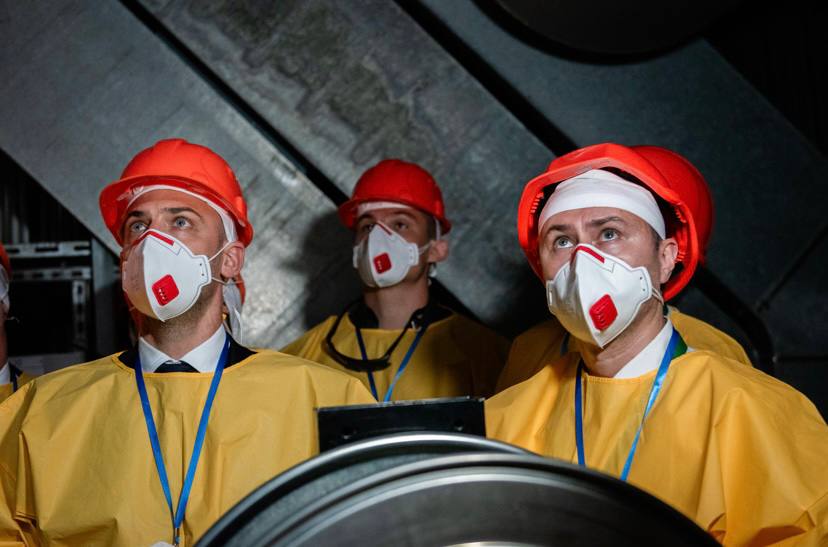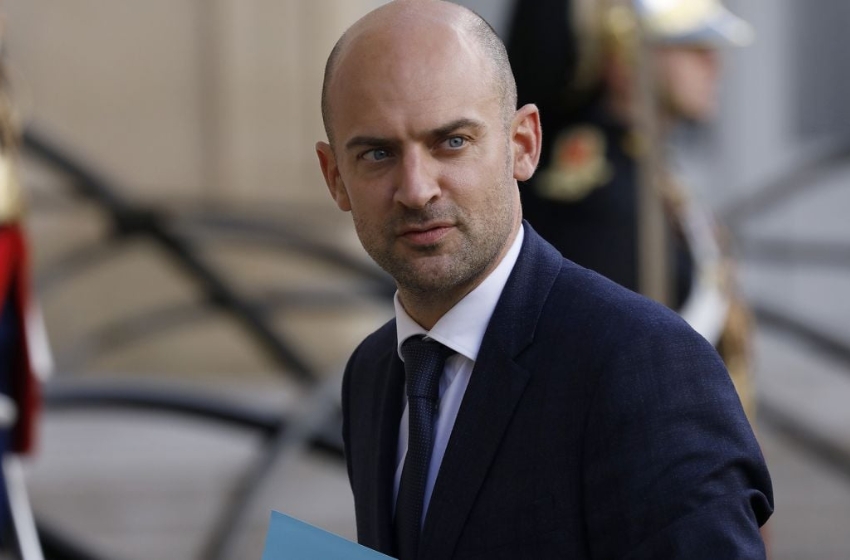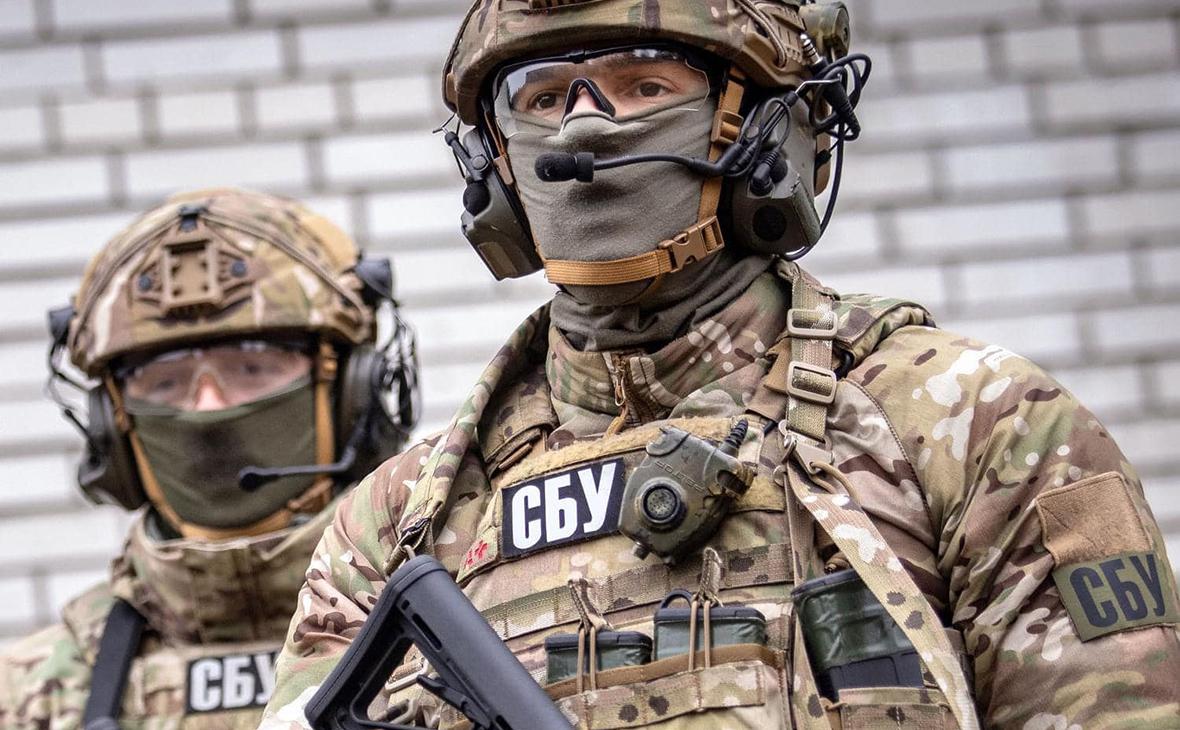Paustovsky Konstantin belongs to the category of those worth reading. Competently and realistically depicted environment, with its picturesqueness and diversity, immerses, captivates, and excites the imagination. As we approach the end, something more significant and more beautiful, cleverly hidden, becomes important than what seemed at first glance. The characters' dialogues are exciting and meaningful due to their different views on the world and the difference in characters. This is a real phenomenon in literature, which you do not love, but admire with all nature, you do not like it, but leads to indescribable delight.
From the little town of Chernobyl I planned to go by boat along the Pripyat to Kiev. I had spent the summer in Chernobyl on the estate of Levkovich, a retired general. I was recommended to him by my schoolmaster as a coach for one of his sons, a lazy, stupid boy who had failed in two examinations.
The old manor-house was situated in a dip in the country with a cold mist drifting over it in the evening, frogs croaking loudly in the neighbouring swamps and the marsh tea plant smelling strong enough to cause a headache. At tea-time the general's madcap boys shot wild ducks from the terrace.
General Levkovich was a heavily built man with a grey moustache and black bulging eyes. Irascible and afflicted with asthma, he sat all day long in an armchair on the terrace, wheezing and now and then shouting hoarsely: "Do you call this a family, this pack of good-for-nothings? They've turned the house into a pigsty. I'll drive every one of them out and won't leave them a penny."
But no one paid the slightest attention to him. For it was Madame Levkovich, his well-preserved, coquettish, thrifty wife, who walked about all the summer in a tightly laced, squeaky corset, that ran the household and the estate.
Besides his good-for-nothing sons, the general had a daughter, a girl of twenty, nicknamed Joan of Arc. This young girl spent most of the day galloping on a fierce bay stallion. She rode astride like a man and pretended to be a femme fatale. "Despicable" was a pet word of hers which she repeated endlessly.
When I was introduced to her she held out her hand from the saddle of her horse and, staring me in the face, said: "Despicable!"
All the time I was there I kept thinking of how to make my escape from this crazy family and was intensely relieved when I at last found myself seated on some hay covered with a cloth in the dogcart which was to take me off to my boat. The driver, Ignatius Loyola (everybody had a nickname, the name of some historical personage, in the Levkovich household), or for short Ignat, tugged at the reins and we set off at a trot to Chernobyl, the thickets beyond the gates greeting us with silence.
We arrived in Chernobyl at sunset only to discover that my boat was late and that we would have to spend the night at the inn.
The innkeeper, an elderly Jew called Koosher, put me up in a small room hung with the pictures of his ancestors—grey-bearded old men in silk skull-caps, and be-wigged old ladies wrapped in black lace shawls. All the old ladies had tearful eyes.
A stench of kerosene came from the kitchen lamp. No sooner had I climbed atop the high feather-bed than an army of bedbugs made for me from all the chinks and cracks in the walls. I sprang out of bed, dressed hurriedly, and went out on the porch.
In front of me stretched the Pripyat, shimmering with a dull gleam. Logs were piled up on its bank. I sat down on a bench and put up my coat-collar. It was a cold night and I shivered. On the porch steps sat two men dimly visible in the dark. One was smoking shag, the other, crouching, seemed to doze. From the yard came the driver's loud snoring; he had gone to sleep on the hay in the cart and now I envied him.
"Bedbugs?" said the man who was smoking in a high-pitched voice.
I recognized him by his voice as the short, glum-looking Jew, with bare feet stuck in galoshes, who, as we drew up at the inn, had opened the gates for us and demanded ten kopeks for this service. I had given him the coin. Koosher, who caught sight of him from the window of the inn, had shouted. "Get out of my yard, you beggar, I've told you that a thousand times." The Jew had not even as much as glanced at Koosher. "Did you hear that?" he said to me with a wink. "Each ten-kopek piece he touches burns his hand. The man's so greedy, he'll die of it, mark my words!"
I asked Koosher who the wretch was. "Oh, that's Joseph, the mad one," he replied reluctantly. "Begs for a living yet has no respect for anyone, looks on you like he were King David sitting on his throne."
"I bet Koosher'll charge you extra for the bedbugs," said Joseph to me, and I saw that his chin had several days' stubble on it. "Once a man's got it into his head to make a fortune nothing's too dirty for him."
"Joseph!" the crouching man beside him cut in suddenly in a testy voice. "Why did you kill my Christina? Can't find peace because of it now for two years."
"Oh, Nikifor, only a man without a grain of sense can say such filthy words," Joseph cried resentfully. "I killed her, you say! Go to your Father Mikhail and ask him who killed her. Or to the police officer Sukharenko."
"My only daughter!" Nikifor cried in dismay. "There is no sun shining for me now, it's gone behind the bogs for ever and ever."
"Oh, shut up, will you?"
"They won't even let me mourn her like a Christian," Nikifor went on, paying no attention to Joseph. "Tell you what I'll do, I'll go to Kiev to the Metropolitan, won't leave him alone till he washes away her sins."
"Shut up!" repeated Joseph. "For one hair of her head I'd give my whole rotten life. And you say...."
Then he suddenly broke down, the sobs sticking in his throat. In an effort to control them, he let out a feeble wail.
"So, you're whining, you fool, good!" said Nikifor composedly and even approvingly. "If Christina hadn't loved you, you miserable rascal, I'd have made short work of you and it'd be no sin."
"Go ahead, make short work of me!" cried Joseph. "Maybe that's just what I'm hankering after. It'd be better for me to rot in the grave than... ." , "You were a fool and you still are one," Nikifor retorted sadly. "But I'll do it when I come back from Kiev, so you'll stop wringing my heart. It's all too much for my poor heart, I tell you."
"And who'll watch your shack when you go?" asked Joseph, now his old self again.
"Nobody. Boarded it up. What do I want with a shack now? Do the dead need a place to live?"
While I was listening to this strange conversation, a thick mist gathered over the river. From the damp logs on the shore came a pungent odour like that of medicine and the silence was broken by the lazy barking of dogs.
"If only we knew when the damn boat is going to come," said Nikifor vexedly. "We could go and get ourselves some drinks, Joseph, just to make things a little easier. But where's one to get drinks this time of night?"
I felt warmer now and leaning against the wall began to doze.
In the morning there was still no boat. Koosher said it must have anchored for the night somewhere because of the fog and that when it arrived it would stay for a few hours in Chernobyl. I had my tea. Ignatius Loyola, the driver, drove back to the estate.
To kill time I set out for the town. Down the main street several shops were open, smelling of herring and laundry soap. A crooked sign on one of the doors proclaimed a barber shop. In the doorway stood its freckled proprietor chewing sunflower seeds. Having nothing better to do I stepped in for a shave. Sighing, the barber lathered my chin and began to question me politely — the usual questions they ask in provincial places—as to who I was, and what had brought me to the town.
Suddenly a group of boys whisked past the barber shop whistling and making faces, and then came Joseph's voice singing:
My song shall ne'er wake
My beauty from her sleep ...
"Lazar," came a woman's voice from behind the timber partition, "bolt the door. Joseph's drunk again. My God, what's going to happen next?"
The barber bolted the door and drew the curtain.
"As soon as he sees a customer in the shop, he's sure to dash in and begin to sing, dance and bawl," explained the barber.
"What's the matter with him?" I asked.
Before he could reply, a young and dishevelled woman, her eyes startlingly bright with excitement, appeared from behind the partition.
"Listen to me, customer," she began, "firstly, let me say 'how d'ye do?' secondly, Lazar'll never know how to tell the story, because, well—can men understand a woman's heart, I ask you? What?! Don't you wag your silly head, Lazar! Let me tell him the story and give him something to think about. Let the gentleman know what a young girl will do for the sake of love." "Manya," said the barber, "calm yourself!" Joseph's voice could be heard from afar:
Come to my grave when I may die
With a bottle of home-brew and some sausage pie.
"My, it's awful!" the woman cried. "And to think it's the same Joseph who was going to qualify for a doctor's assistant at Kiev, son of Pesya, the kindest soul in Chernobyl. Thank God she hasn't lived to see him come to this. Can you imagine, customer, a woman loving a man so dearly that she is ready to bear any torture for his sake."
"There you're off again, Manya," exclaimed the barber, "I'm sure the gentleman doesn't understand a thing you're saying."
"All right, I'll begin with the town fair," said Manya. "And who should come to this fair, but Nikifor, a widowed forester from Karpilovka way, with his only daughter Christina. Now there was a girl, I tell you! If you'd seen her you'd be ready to die for her. Her eyes—I tell you they were as blue as that bit of sky over there, and her braids as fair as though she'd dipped them in gold. And she was so sweet, and slender! Joseph as soon as he sat eyes on her lost his power of speech. He fell in love at first sight. But that, of course, is not to be wondered at. The tsar himself, if he had set eyes on her, would be pining away for her right now. What is to be wondered at is that the girl fell in love with him. You've seen Joseph? A shrimp, a red-head and with the funniest ways. Well, to make a long story short, Christina left her father's home and went to live with Joseph. You should see Joseph's place. It'd make you sick. A goat would feel cramped there, let alone three grown-ups. But, when all is said and done, it was a clean place. And what do you think Pesya did? Welcomed the girl like she was a princess. And Christina and Joseph began to live well— like man and wife. Joseph was in heaven, of course. But do you know what it means for a Jew to love a gentile? They can never be wedded. And then, of course, the whole town was set a-cackling like a regiment of hens. Joseph decided to take the Christian faith and went to Father Mikhail. 'You should have thought of conversion before you deflowered a Christian maid,' the priest told him. 'You acted contrariwise, and now I won't baptize you without the Metropolitan's own consent.' Whereupon Joseph called him a dirty name and left. Then it was that our rabbi interfered. He found out that Joseph wanted to turn Christian and he cursed him and his at the synagogue down to the tenth generation. And to cap it all, Nikifor came and on his knees begged Christina to go back with him. But she only shed tears and gave no answer. Then some dirty folk set the town's boys to teasing poor Christina. 'Say, kosher Christina,' they shouted at her, 'will you have some Christian meat?' And they made noses at her. In the streets the people stared after her and laughed. There were some who even threw dung at her from behind a fence. And they smeared Pesya's house with tar!"
"Ah, Pesya!" the barber exclaimed with a sigh. "What a woman!"
"Stop interrupting!" Manya shouted at him. "The rabbi called for Pesya and said: 'You breed sin in your home, my esteemed Pesya Izraelevna. You have trespassed the law. I can lay a curse on you and yours and Jehovah will punish you as he would a street woman. Have compassion on your own grey locks.' And what do you think she answered? 'You are no rabbi,' she said, 'you're worse than a policeman! Two young people love each other, and why should you butt into their affairs?' She spat and went out. The rabbi excommunicated her, too. They know how to muzzle folk out here. Only don't say I said so. The whole town buzzed with the affair. Then district policeman Sukharenko called for Joseph and Christina: 'As for you, Joseph, I'm locking you up in gaol for insulting Father Mikhail, a man of God,' he said. 'And I'll see you get a taste of the labour gangs yet. And you, Christina, have got to go home to your father. I give you three days to make up your mind. You two have stirred up the whole uyezd. I'll be getting into trouble from His Excellency, the Governor-General, before I know it.'
"And without further ado, Sukharenko thrust Joseph into a cell. He said afterwards he did it only to frighten him. And you won't believe what happened: Christina died of grief. To watch her after Joseph was imprisoned made kind folks' hearts go out in pity for her. She wept for several days until she had no more tears. Her eyes dried up and she would have nothing to eat, begging only that they let her see Joseph. On Yom Kippur, the Day of Atonement, she went to sleep never to rise again. She lay white and happy as though thankful to God for having taken her away from such a rotten life. Why had she been so punished as to fall in love with Joseph, I ask you, why? Surely there are plenty of other men in the world. Sukharenko let Joseph out, but from that day he's been stark mad, and has taken to drinking and begging".
"I would have preferred death in his place," said the barber. "Would have shot myself through the head."
"You men think you are so very brave!" Manya cried contemptuously. "But when it comes down to brass tacks you'll run a mile a minute from death. When love scorches a woman's heart it's a different matter. That you can't understand!"
"It's all the same, I tell you, whether it's a man's heart or a woman's!" replied the barber, shrugging.
From the barber's I went directly to the inn. Neither Joseph nor Nikifor was there. Koosher I found sitting drinking tea at the window in a vest that had seen better days with fat flies buzzing about him.
It was not till the evening that the boat arrived, and it lay at Chernobyl till late at night. A worn oilskin couch in the salon served as my berth. At night the fog had gathered again, and the boat tied up to the shore. I did not find Nikifor on board, so he must have gone and got drunk with Joseph.
I have dwelt in such detail on this story because of the effect it had on me. As soon as I returned to Kiev I threw my note-books with all my verses into the fire. Without a pang of regret I watched the sheets with their fancy phrases about "foamy crystals" and "sapphire skies" curl into ashes.
The story I had heard had a good sobering effect on me. I realized what rubbish I had been writing about love, comparing it with the "languor of dying lilies," while here lumps of dung were cast at a beautiful woman who loved.
These thoughts brought back to me words I once heard: "A horrid age breeds horrid hearts." I decided to write my first short story—about Christina. "A true story," I said to myself.
I worked at it for a long time, but could not understand why it was coming out so colourless and insipid despite its dramatic intensity. Then it dawned upon me: in the first place, there was the difficulty of writing a story from another's words; in the second place, I had made the mistake of becoming wholly absorbed in Christina's love and giving too little attention to the savage "small town" morality of which she was a victim.
I rewrote the story, somewhat surprised that in doing so no refined or beautiful words came to my mind. The story required hard truth and simplicity.
When it was finished I took it to the editor of a magazine which had previously published some of my verses.
"A waste of time," said the editor. "Can't print such stuff. Why, for that description of the police officer alone we'd get into trouble. But there's guts in the story. Bring us something else—and you'd better use a pen-name if you don't want to get kicked out of school."
I took the story back and put it away. When, the following spring I happened to reread it I understood yet another thing: I had not put enough of myself into the story—my indignation, my thoughts, my admiration for Christina's love. I rewrote the story once again and took it to the editor—this time not to have it published but for an opinion. The editor read it through in my presence, and slapping me on the back said: "Good stuff!"
I realized then that a writer must express what is in his mind and heart fully and unreservedly even in a short story 'like this, thus voicing the spirit of his times and the aspirations of his own people. There must be no shame in revealing anything before the reader, no fear in repeating what has already been said by other writers (though, of course, through the prism of one's own thoughts and feelings); no thought of what the critics or editors would say.
The writer gives himself wholly to what he is writing, forgetting everything else, and he writes as though he is writing to himself or to the being dearest to him in the whole world. Only then can he give full rein to his thoughts and let them flow freely. And he will find to his amazement that there are far more thoughts, more feeling and poetic power in him than he had ever supposed there to be. Thus the creative process is set in motion, and as it runs its course it acquires new qualities, becomes more complex and richer.
The creative process may be likened to spring. The sun's rays melt the snow, warm the air, the soil and the trees. They fill the earth with a humming and a rippling, with the play of drops and running water—the thousand signs of spring. Likewise, the creative process, once begun, calls forth a constant flow of fresh thoughts and images, sensations and words, so that the writer himself is sometimes astounded at the result.
One can become a writer only when one has something new, significant and interesting to say and when one can see a good deal which escapes the notice of others.
To return to myself, I must say that when I first began to write I realized only too poignantly that I had very little to say, and also that the impulse to create, if it is not fed, can be as easily extinguished as it is kindled. My store of life's observations was infinitesimal. Book knowledge outweighed my knowledge of life. I felt this keenly and knew that I must fill myself with life to the very brim.
To do this I dropped writing completely—for ten years. And as Maxim Gorky had said I went "out into the world." I began to tramp the country, trying my hand at various jobs and knocking about with all sorts of people. I did not go out of my way "to observe life" or "collect facts" for future books. I lived as all people do, working, loving, suffering, hoping, dreaming. Yet, for all that, at the back of my mind, there was the ever-present thought that some day, sooner or later, perhaps even in my old age, I would begin to write—not because it was my ambition to become a writer, but because my whole being cried out for it and because literature to me was the most wonderful thing in the world.
Translated by Susanna Rosenberg





















